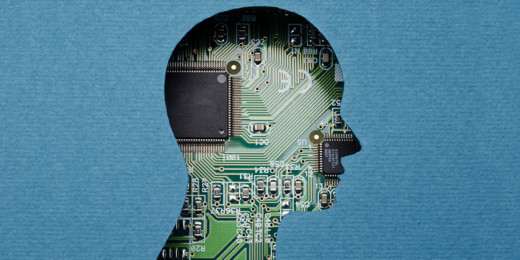You hear a lot about machines taking over technical aspects of medicine -- reading images, for example, or monitoring patients in the ICU.
But what if artificial intelligence could help doctors be better at the human side of medical care?
Two leaders of Stanford's Presence Center -- founding faculty director Abraham Verghese, MD, and executive director Sonoo Thadaney Israni -- explore this intriguing question in an essay published this week in JAMA. They offer additional insights in a 25-minute podcast conversation with JAMA deputy editor Michael Berkwits, MD.
In the JAMA piece, Verghese and Israni write:
The desirable attributes of humans who choose the path of caring for others include, in addition to scientific knowledge, the capacity to love, to have empathy, to care and express caring, to be generous, to be brave in advocating for others, to do no harm, and to work for the greater good and advocate for justice.
How might AI help clinicians nurture and protect these qualities?
Verghese and Israni acknowledge that it's a challenge that some view as "messy" and "hard to define" -- reasons, perhaps, that medical entrepreneurs have largely been reluctant to take it on. They want this to change, however, and they offer ideas for innovators to consider.
In the interview, Verghese speaks of a hypothetical clinical setting in which artificial intelligence tools use social media, analysis of previous visits and other sources to fill physicians in on personal details of a patient, including what is important to them and who is close to them. He says:
They've gotten so granular when it comes to your genome, your billing codes. We're just lacking that kind of a coding system that addresses the varieties of human beings that we take care of, and puts it together in a graphic form... so that you can immediately get a sense of who this is as you walk into the room, and you're better prepared to connect, better prepared to meet them where they're at.
Israni stresses that values of equity and inclusiveness can be reflected in AI predictions if tools are developed by a diverse group of scientists using data sets that are unbiased and representative of society -- even if it takes extra effort to collect the information. She says:
If we choose to measure that which is easy to measure -- or easier to measure -- and not think through the unintended consequences and struggle with measuring messier things, we can come up with very clean, beautiful algorithmic solutions, but we run the risk of exacerbating the equity issues.
Ultimately, Verghese and Israni say, in addition to enhancing the science of diagnostics and treatment, artificial intelligence -- perhaps unexpectedly -- holds the potential to improve on another crucial aspect of medical care: human connection.
Photo by rawpixel





